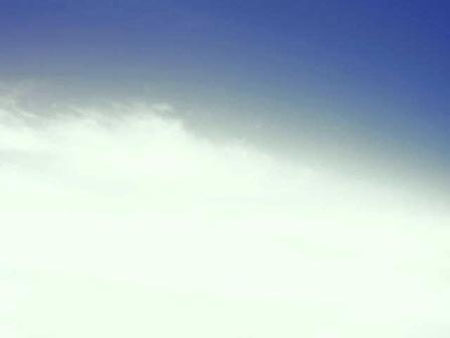
a phoetics: fragment 10
It is absolutely important to remember that there is absolutely no absolute: And so no absolution except in madness and ecstacy. The word "absolute" is derived from the Latin absolutus, the pluperfect of absolvere, meaning "to set free, make separate" as well as its implication of "detached, disengaged" (as in "despot"), which is one of the pitfalls of language: Disengagement from the concrescence of being in the thing. As Jackson Pollack may have said, "When I am in the thing, I can do no harm"; so, one may imply, language when it is not "in the thing" is harmful.
But time, experientially, appears absolute, imagined melodically as a constant, Frank Kermode's "tick-tock," viz.: "The clock's 'tick-tock' I take to be a model of what we call a plot, an organization which humanizes time by giving it a form..." Whitehead speaks of this. As noted, his philosophical goal in Process and Reality is book-ended by Timaeus, in which Plato articulates a vision of the primary components of the universe (earth, air, fire, water and space) worked by a demiurge, in the Greek literally meaning "common worker" (the Greek demos, "common people," plus ergos, "work"), that does not transcend process but is integral to it"”namely exists in time. But more than that, and tellingly, Plato calls time "a moving image of eternity." Timaeus:
Wherefore he resolved to have a moving image of eternity, and when he set in order the heavens, he made this image eternal but moving, according to number, while eternity itself rests upon unity; and this image we call Time.
In this sense the demiurge manifests itself as time, made manifest as experience, "as process" itself. To reverse this saying, "Time... is a moving image of eternity" - of aion, the Greek word not only is associated with time ("age" and "lifetime") but also "life force," which is close on the heels of demiurge, as a life force appears in work, or act. Acts appear in movements, which we may record, measure, as time: Intervals. But eternity remains a hang-up, as it does "make separate" as we cannot be there: We are in, are found, in time. Perhaps more usefully, Whitehead ties time to creativity and the permeability of the universe:
In the abstract language here adopted, for metaphysical statement, "passing on" [the experience of time] becomes "creativity," in the dictionary sense of the verb creare, "to bring forth, beget, produce." Thus"¦ an entity is at least a particular form capable of infusing its own particularlity into creativity. An actual entity, or a phase of an actual entity, is more than that, but, at least, it is that.
In Whitehead's reading, time is mutable, creative: That dimension (namely, what is "measured out") wherein an active agent capable of holding a vector may infuse "particularity," even as an "actual entity" (according to Whitehead) "is more than that." Rather than an absolute container within which things become, passing through a succession of configurations, time for Whitehead is an abstraction of our experience. All time partakes of each particular moment, and all space interpenetrates each particular location (the realization of which may point to "more than that"). There is no time outside of place nor place out of time: No absolute inside or outside. As Whitehead writes: "In a certain sense, everything is everywhere at all times. For every location involves an aspect of itself in every other location. Thus every spatial-temporal standpoint mirrors the world." One does one need to travel far afield to fetch the "one event" into a primal knot for evidence. Rather, observation of what lies immediately in and between what Pound called "the sun and mud" is sufficient. The well is no father away than the pulse in your jugular vein, and the universe a raindrop.
one: "I began working with voice recordings..."
two: "The week Robert Creeley died..."
three: "'Thing,' from the Anglo-Saxon..."
four: "While I mark the beginning of my interest..."
five: "After transcribing 'the wells at the mouth of itza...'"
six: "The distinction”and so mental distance..."
seven: "The PIE *wel- also means "to turn, roll...'"
eight: "Contrary to the fix in which Eliot lost and found..."
nine: "My relationship early on with ESB meta-intellect..."
ten: "It is absolutely important to remember..."